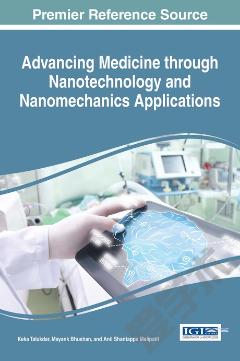Microfluidics, Nanotechnology and Disease Biomarkers for Personalized Medicine Applications
In recent years, thousands of cancer biomarkers have been discovered and described in scientific literature. The promise of personalized medicine, where diseases such as cancer are accurately diagnosed and treatments tailored specifically for individuals, is becoming a reality. Significant advances in biomarker-based research methodologies such as Next Generation Sequencing (NGS) are at the cusp of ushering in a new era of personal medicine. However, unlike the spectacular advances in research technologies for disease biomarker discovery, biomarker-based technologies that can effectively be used in the clinic (or point-of-care) to enable personalized medicine are still lacking. In this book, we feature a selection of emerging technologies which are aimed at enabling clinical applications of personalised medicine. Each of the eight chapters is written by a leading group at the intersection of microfluidics, biology, and nanotechnology. For instance, to accelerate a major bottleneck in the development of clinically useful protein diagnostics, we discuss the application of yeast-derived single chain Fragment variable (scFv) antibody-like molecules as a potential low cost alternative to traditional antibody-based diagnostics. Circulating tumour cells (CTCs) are an emerging class of cancer biomarkers and a potential resource for understanding cancer progression; we explore various strategies combining microfluidics with nanotechnology for capturing CTCs. The book includes an evaluation of some current and emerging technologies for detecting clinical DNA methylation, another potential cancer biomarker. As personalized medicine may involve tracking a patient's response to treatment, the application of microfluidics to detect metabolites in biological fluids is also discussed. Finally, the ultimate goal of personalized medicine is targeted therapy. One promising approach is RNAi technology which uses short nucleotides to disrupt cancer pathways. In this book, nanoparticle approaches to deliver these short nucleotides are discussed
{{comment.content}}








 京公网安备 11010802027623号
京公网安备 11010802027623号